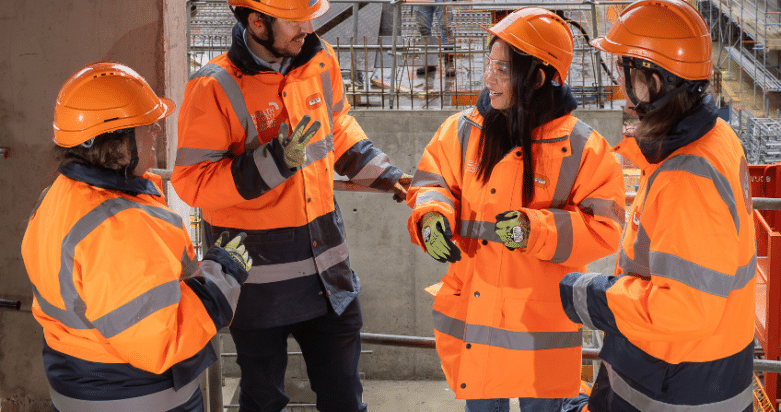
Why Bouygues UK is Supporting T Levels: From Classroom to Workplace
As leaders in the construction industry, at Bouygues UK, we are all too aware of the challenges the sector is facing when it comes to recruiting young people into careers in construction and engineering. This is why we are so excited about our partnership with Class Of Your Own (COYO), the award-winning creators of the Design Engineer Construct! (“DEC”) Learning Programme, which we established at the end of 2023 to deliver our new T Level industry placement programme. Not only does this form part of our vision for an education sector that elevates outcomes for both students and staff, but we also have firm belief that the programme will inspire the next generation to consider more careers in our industry which will undoubtedly bring a whole host of benefits to the future of construction.
In the last 3 years, T Levels have been a significant addition to the educational landscape in England, designed to offer students a robust alternative to traditional post-16 academic pathways. By blending classroom learning with practical industry experience, T Levels aim to bridge the gap between education and employment, ensuring students are well-prepared for the real world of work, apprenticeships, or further study.
Introduced to provide a credible and practical route for students after their GCSEs, these technical qualifications were developed in collaboration with employers. Structured over two-year courses, T Levels are equivalent to three A-levels and are set up to ensure that the curriculum meets the needs of various industries. The innovative approach of T Levels includes a balanced division of learning time: 80% in the classroom and 20% on a dedicated work placement, amounting to at least 315 hours, or approximately 45 days.
One of the standout features of T Levels is the range of pathways they offer. For example, the construction T Levels provide three distinct routes: Onsite Construction, Design, Surveying and Planning (DSP), and Building Services Engineering. These pathways cater to different interests and skills, from trades to contracting and engineering. Such diversity helps students understand the breadth of roles available in the construction industry beyond the common perceptions of bricklayers or architects.
For the construction industry, T Levels are not just about immediate skill development; they are a strategic investment in future talent pipelines. Historically, companies have relied heavily on graduate schemes to source talent. However, T Levels, alongside apprenticeship programmes, offer a new avenue to attract capable and eager young individuals who prefer a more hands-on approach rather than full-time further education.
Carol Heneghan, Framework Manager at Bouygues UK and advocate for making construction an attractive career choice, underscores the importance of the industry’s role in supporting T Levels:
Bouygues UK sees T Levels as a critical opportunity to provide young people with their first real taste of the workplace. This initial exposure is designed to connect students with the vast opportunities within the construction sector, highlighting how their existing creative and digital skills, along with their focus on sustainability, align with industry demands.
Working with organisations like COYO, which has a proven track record in engaging and educating young people globally, Bouygues UK is proud to be supporting cohorts of students studying for their T Levels as they integrate real work and real-world learning into their curriculum. This alignment with the Department for Education’s ambitions and industry needs is pivotal. Bouygues UK is also extending our engagement in the qualifications through initiatives like the Design Engineer Construct! Learning Programme, which is introduced to secondary schools via COYO’s ‘Adopt A School’ scheme. This initiative targets students from ages 11 to 18, creating a pipeline for technical and academic pathways and addressing the construction industry’s urgent need for skilled talent.
There is no doubt that T Levels represent a forward-thinking approach to education and industry collaboration, ensuring that young people are not only educated but also prepared for the realities of the workplace. Bouygues UK looks forward to supporting as many cohorts of students commencing their T Level journey as we can, and we can’t wait to see everything they achieve through their qualifications.










